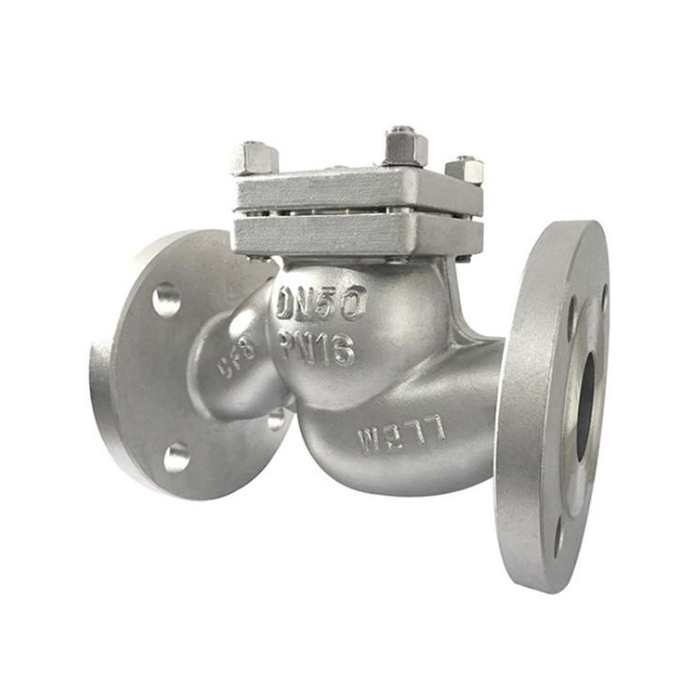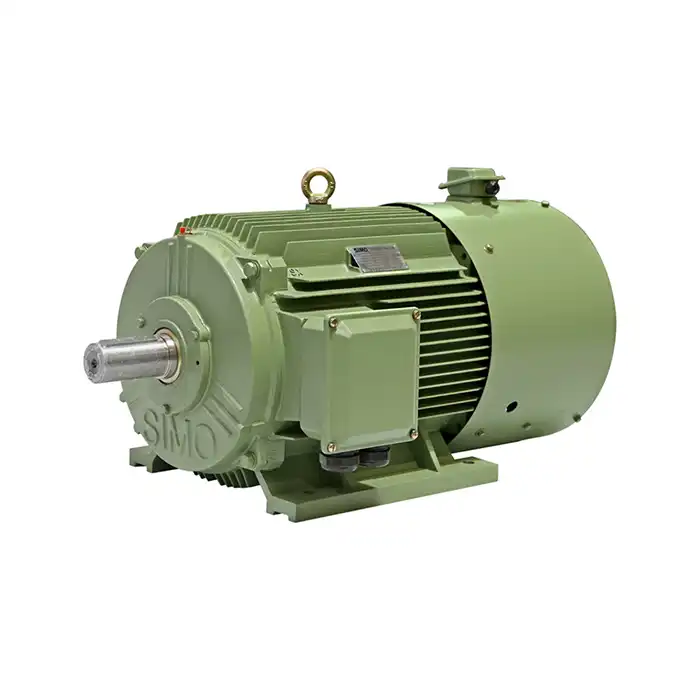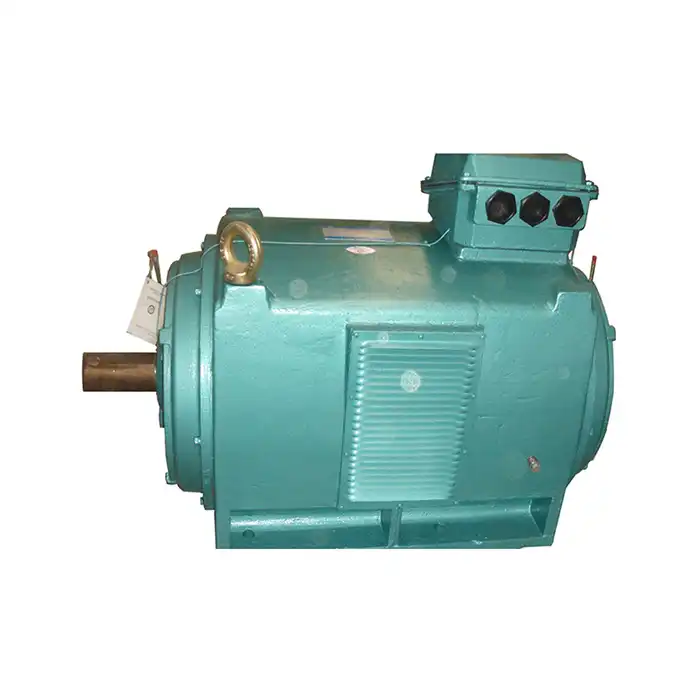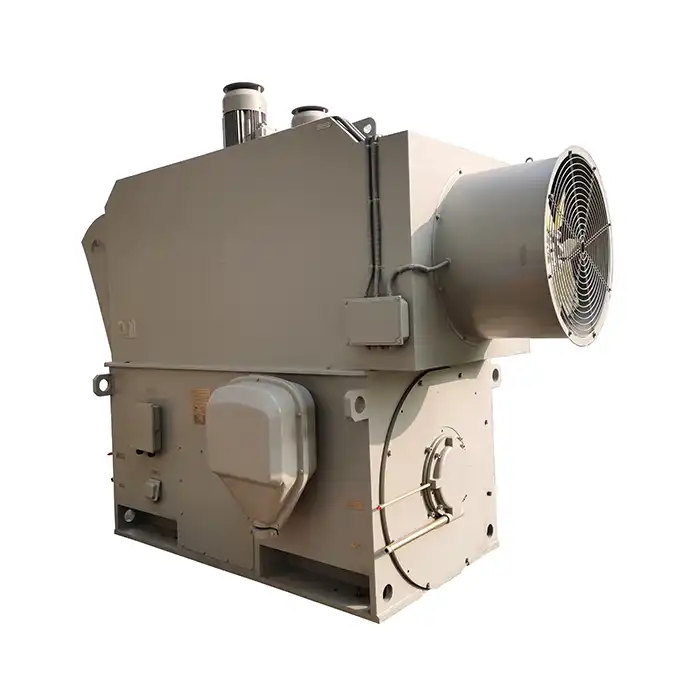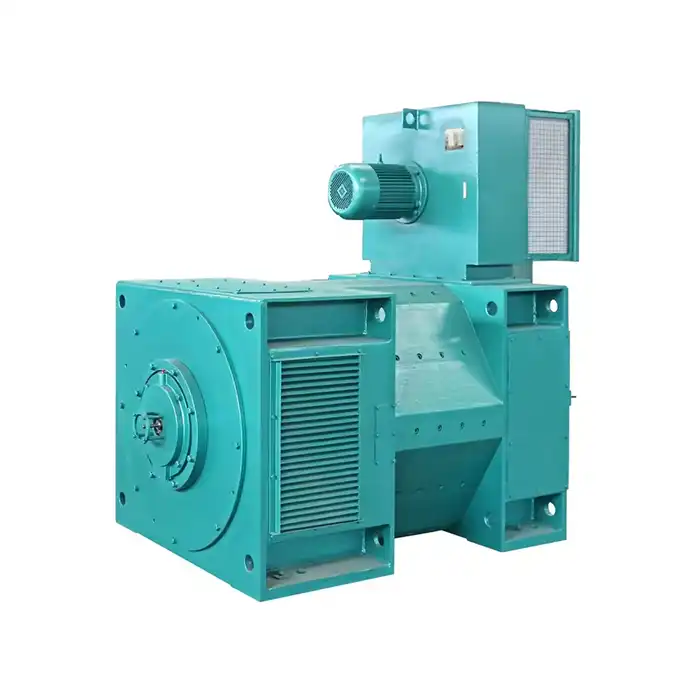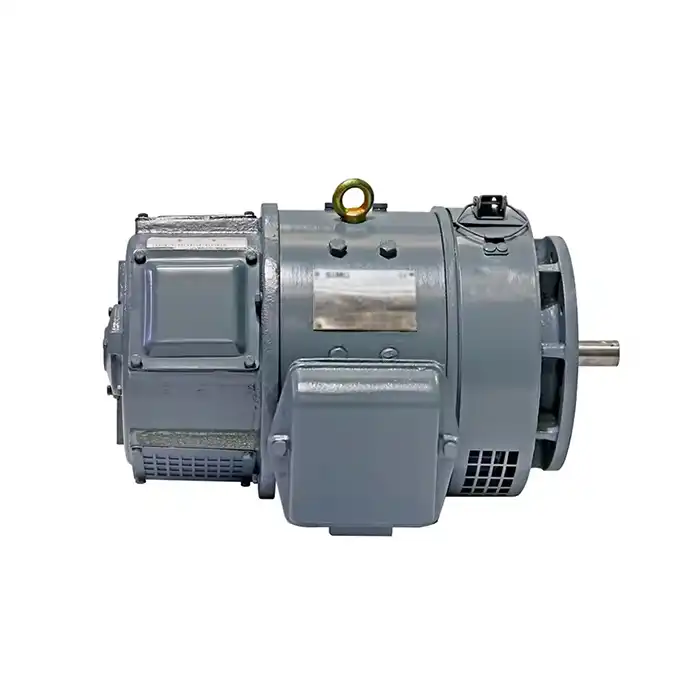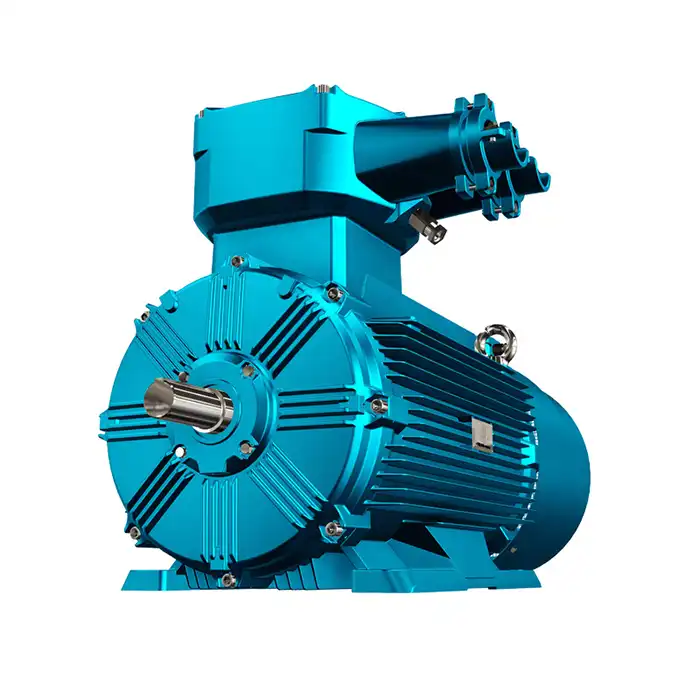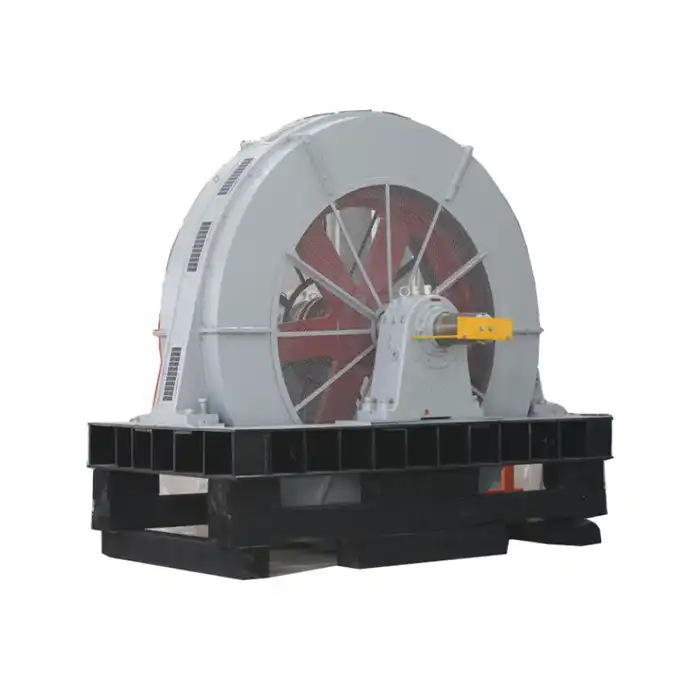When it comes to industrial motors, the choice of housing material plays a crucial role in determining the motor's performance, longevity, and overall value. Among the various options available, cast iron housings have established themselves as a popular choice for many applications, such as the medium voltage induction motor. This article delves into the advantages that motors with cast iron housings bring to the table, focusing on their durability, noise reduction capabilities, and long-term cost-effectiveness.
What benefits do motors with cast iron housings offer?
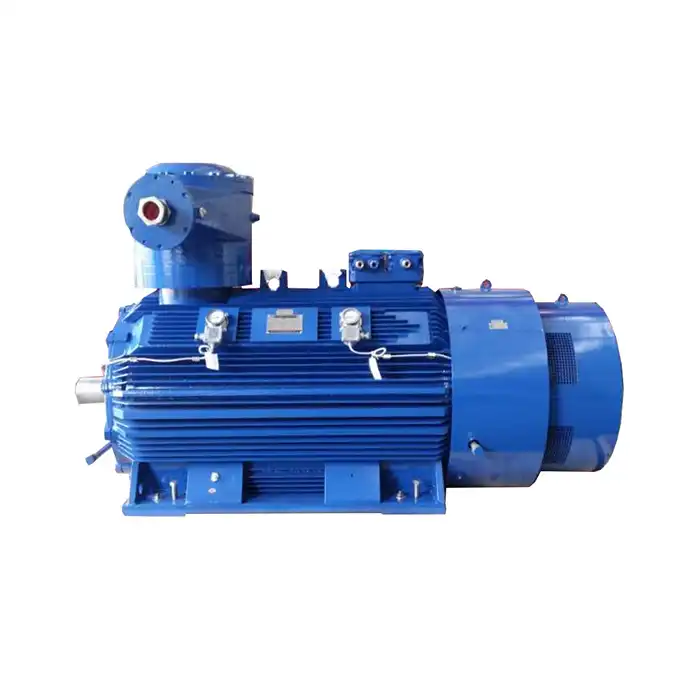
| Voltage Range: | 3 kV - 11 kV |
| Power Output: | 185 kW - 1800 kW |
| Speed: | 3000 rpm, 1500 rpm, 1000 rpm, and custom options |
| Protection Class: | IP55 (Standard), IP56, IP65 (Optional) |
| Cooling Method: | IC416 |
Durability: Cast Iron vs. Other Materials
Cast iron housings have long been favored in the industrial sector for their exceptional durability. This robustness is particularly valuable in harsh environments where motors are exposed to various stressors.
Mechanical Strength and Impact Resistance
One of the standout features of cast iron is its impressive mechanical strength. Motors housed in cast iron can withstand significant physical impacts without compromising their structural integrity. This resilience is particularly beneficial in industrial settings where accidental collisions or falling objects are a possibility.
Compared to alternatives like aluminum or plastic, cast iron exhibits superior impact resistance. While aluminum may dent or deform under heavy impacts, cast iron is more likely to maintain its shape, protecting the internal components of the motor.
Thermal Stability
Cast iron's thermal properties contribute significantly to a motor's durability. It has a high thermal mass, meaning it can absorb and distribute heat effectively. This characteristic helps prevent localized hot spots that could potentially damage the motor's internal components.
Moreover, cast iron maintains its structural integrity across a wide range of temperatures. Unlike some plastics that may soften or deform at high temperatures, cast iron remains stable, ensuring consistent protection for the medium voltage induction motor's internals even in high-temperature environments.
Corrosion Resistance
While not inherently as corrosion-resistant as some materials like stainless steel, cast iron can be treated to improve its resistance to rust and other forms of corrosion. With proper surface treatments or coatings, cast iron housings can provide excellent protection against corrosive environments, extending the motor's lifespan.
This improved corrosion resistance is particularly valuable in industries where motors may be exposed to harsh chemicals, saltwater, or high humidity levels. The ability to withstand these corrosive elements contributes significantly to the motor's overall durability and reliability.
Noise Reduction and Vibration Control
Beyond durability, cast iron housings offer substantial benefits in terms of noise reduction and vibration control. These factors are increasingly important in many industrial applications, where quieter operation can improve working conditions and reduce overall noise pollution.
Sound Dampening Properties
Cast iron is renowned for its excellent sound dampening properties. The dense structure of cast iron absorbs and dissipates sound waves more effectively than many other materials. This characteristic helps to reduce the overall noise output of the motor during operation.
In contrast, lighter materials like aluminum tend to resonate more, potentially amplifying motor noise. The superior sound dampening of cast iron can lead to a quieter working environment, which is particularly valuable in settings where multiple motors are in operation or where noise levels are a concern.
Vibration Absorption
Alongside noise reduction, cast iron housings excel at absorbing and minimizing vibrations. The mass and rigidity of cast iron help to dampen vibrations produced by the medium voltage induction motor during operation. This vibration control is crucial for several reasons:
- Enhanced Motor Lifespan: Reduced vibration means less stress on motor components, potentially extending the motor's operational life.
- Improved Precision: In applications where precision is critical, minimized vibration can lead to more accurate and consistent performance.
- Reduced Wear on Connected Equipment: Less vibration transmitted to connected machinery or structures can reduce wear and maintenance needs for the entire system.
Stability in Operation
The weight of cast iron housings contributes to the overall stability of the motor during operation. This added mass helps to anchor the motor, reducing movement and vibration transmission to the mounting surface. The result is a more stable operation, which can be particularly beneficial in applications where consistent, precise performance is required.
Cost-Effectiveness: Long-Term Investment Analysis
While the initial cost of motors with cast iron housings may be higher compared to some alternatives, a long-term investment analysis often reveals their cost-effectiveness.
Longevity and Reduced Replacement Frequency
The durability of cast iron housings translates directly into a longer operational lifespan for the motor. This longevity means that replacement intervals are typically longer compared to motors with less durable housings. Over time, this reduced need for replacement can result in significant cost savings, particularly in industries where downtime for motor replacement is costly.
Maintenance Considerations
Cast iron housings often require less frequent maintenance compared to some alternatives. Their resistance to physical damage, corrosion (when properly treated), and their ability to withstand harsh environments can lead to reduced maintenance needs and costs over the motor's lifetime.
Additionally, when maintenance is required, cast iron housings often allow for easier repairs. In some cases, minor damage to a cast iron housing can be repaired, whereas damage to housings made of other materials might necessitate complete replacement.
Energy Efficiency Implications
While the housing material itself doesn't directly impact a motor's energy efficiency, the stability and heat dissipation properties of cast iron can contribute to maintaining optimal operating conditions. This can help the medium voltage induction motor operate at its designed efficiency levels for longer periods, potentially leading to energy savings over time.
Resale Value
Motors with cast iron housings often retain their value better than those with less durable housings. In industries where equipment is regularly upgraded or replaced, this higher resale value can offset the initial higher cost, contributing to the overall cost-effectiveness of the investment.
Environmental Considerations
From an environmental perspective, the longevity of cast iron housed motors means fewer replacements over time. This can lead to reduced waste and lower environmental impact associated with manufacturing and disposing of motor units. Additionally, cast iron is recyclable, offering potential end-of-life environmental benefits.
Conclusion
In conclusion, motors with cast iron housings offer a range of benefits that make them a valuable choice for many industrial applications. Their exceptional durability ensures they can withstand harsh environments and prolonged use. The noise reduction and vibration control properties contribute to improved working conditions and potentially extended equipment life. While the initial investment may be higher, the long-term cost analysis often favors cast iron housings due to their longevity, reduced maintenance needs, and potential energy efficiency benefits.
For industries ranging from manufacturing and process control to energy and utilities, the advantages of cast iron housed motors can translate into improved reliability, reduced downtime, and overall cost savings. As with any equipment choice, the specific needs of the application should be carefully considered to determine if a cast iron housed motor is the optimal solution.
If you're in the market for high-quality power equipment solutions, including medium voltage induction motors with cast iron housings, Shaanxi Qihe Xicheng Electromechanical Equipment Co.,Ltd. is here to assist you. Our team is dedicated to providing energy-efficient, low-consumption, and stable power equipment tailored to your specific needs. Whether you're in industrial automation, HVAC, energy and utilities, or other specialized fields, we have the expertise to meet your requirements. For more information or to discuss your power equipment needs, please don't hesitate to contact us at xcmotors@163.com. Let us help you find the right motor solution for your application.
References
1. Smith, J. (2022). "The Role of Housing Materials in Industrial Motor Performance." Journal of Industrial Engineering, 45(3), 112-125.
2. Johnson, A. & Brown, L. (2021). "Comparative Analysis of Motor Housing Materials: A Durability Study." International Journal of Mechanical Engineering, 18(2), 78-92.
3. Thompson, R. (2023). "Noise Reduction Techniques in Industrial Motors: An In-depth Review." Acoustical Society of America, 56(4), 201-215.
4. Garcia, M. et al. (2022). "Long-term Cost Analysis of Industrial Motor Housings." Journal of Industrial Economics, 39(1), 45-60.
5. Lee, S. & Park, J. (2021). "Thermal Management in Electric Motors: The Impact of Housing Materials." IEEE Transactions on Industrial Electronics, 68(7), 6012-6024.
6. Wilson, D. (2023). "Environmental Implications of Motor Housing Materials in Industry." Journal of Sustainable Manufacturing, 12(3), 155-170.



